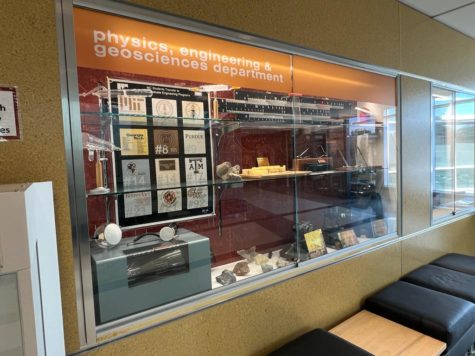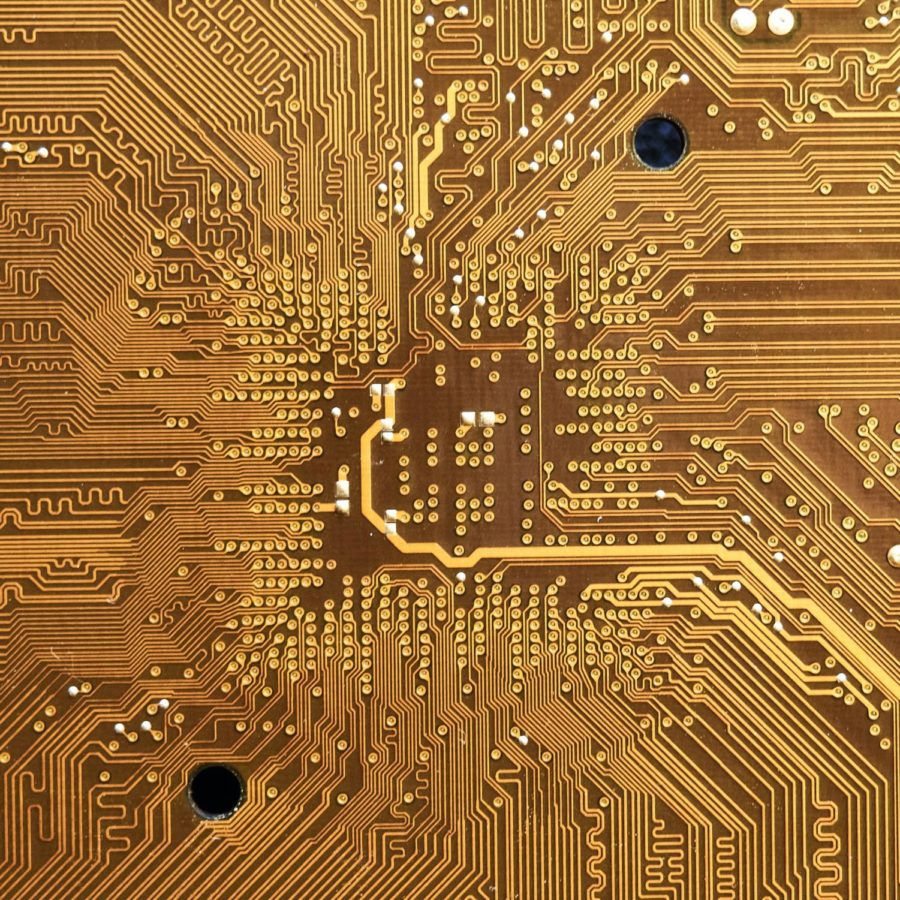The Rise of Quantum Computing
February 11, 2023
In recent years, society experienced massive technological advances in computer science since computers boomed in the ’90s. Our lives dramatically changed when computers became accessible to most consumers. For people born in recent decades, many struggle to imagine how society would be without the support of computers, from spending time on social media to doing important tasks such as bank transfers or sending an important message to a boss or a professor.
Surprisingly, this massive revolution happened over about 30 years, which shows us that computer science developments are still young. Scientists actively look at improving computer performances, and one of the promises scientists have shown what we know as quantum computing.
Quantum computing unifies computer science and physics under the same field, bridging those two disciplines. Briefly, quantum computers use the advantages of exotic quantum mechanics laws to increase their effectiveness. Their processes use principles such as uncertainty of particles, quantum tunneling, and many others.
The main difference between traditional and quantum computers is that traditional computers work by using bit systems, which we would know as “on” or “off,” “one” or “zero,” but quantum computers work by using what we know as “qubits,” units that are undefined between two concretes values or states, meaning that they can be at “zero” and “one” at the same time. Therefore, we need fewer qubits to represent the same number of bits, which increases their solving task performance. However, more research is needed in this field since quantum computing is still a new technology.
In Montgomery County, one of the most significant research institutions in the quantum technology area is NIST (National Institute of Standards and Technology), located in Gaithersburg. NIST has researched quantum technology since the 1990s, having done studies related to quantum materials, cryptography, and quantum theory. Recently, NIST made advances intro understanding quantum materials, which can be used to fabricate components for quantum computers (https://www.nist.gov/news-events/news/2022/11/nists-grid-quantum-islands-could-reveal-secrets-powerful-technologies).
NIST has been one of the most important developers of quantum technology in Montgomery County, where they also have connections with MC students through their NIST internship at MC for conducting research in related fields.
However, most research and experiments in the United States are being done in other states, principally in California and Colorado. Nonetheless, the recent discovery of NIST may empower the quantum computing industry in Montgomery County.
On the other hand, what would quantum computing improve in Montgomery County? We can think of the better performance of actual computer tasks, such as “more efficient computers.” However, there are also other outcomes that quantum computers can be used to benefit people. A list of possible benefits of quantum computing are:
1. Simulating particles, atoms, and molecules:
Although it does not look obvious, studying subatomic scenarios can require an immense amount of data. Despite being tiny scenarios, the number of particles interacting in nature can be hard to track.
However, by using a quantum computer, it is possible to have enough efficiency so that we can simulate these scenarios on computers with high accuracy. We could represent the exotic quantum mechanics laws to simulate a molecule under different circumstances as desired. This can be useful, for example, to pharmaceutical companies, which would simulate molecules to produce more efficient medicines.
2. Increasing Cybersecurity:
RSA (Rivest–Shamir–Adleman) is the encryption system used for most computers to protect the security of passwords. Briefly, it states that it is a titanic work getting the prime factors of an immense number. However, doing this process for a huge number can be insane to do; this assumption is what protects our privacy due to the RSA encryption cipher.
The advantage of creating encryption systems with quantum systems is that their safety lies in nature instead of assumptions. Although it can be a titanic work, if some person deciphers how to decompose huge numbers into prime factors quickly, the privacy of most people would be in danger. Encryption using quantum systems does not have this potential danger; their mechanisms are obtained from nature, eliminating the risk of someone deciphering how to break the RSA cryptosystem.
3. Machine Learning:
In computer science, machine learning refers to algorithms that can solve proposed tasks while learning how to become more efficient. For example, you could program an app, such as a social media app or a mobile game, to detect when the phone’s user is more connected to their cellphones and send notifications at that time, increasing the chances for the user to see those notifications.
By using quantum computers, the time required for these algorithms to learn can be reduced. Nowadays, Quantum computer algorithms can be used to solve mathematical problems very efficiently, such as Fourier Transformation or linear algebraic problems, but by implementing these changes into classical algorithms, it may be possible to make them more efficient in the future.
We can appreciate the importance of quantum computing by looking at how entities are in a race to make the most efficient quantum computer. In the United States, IBM, Google, Microsoft, and Amazon are making high progress in the research field, and even IBM offers public access to their quantum platforms so that anyone can program with quantum computers.

In Montgomery County, some entities, such as NIST or even MC, are trying to get into this new field by starting to create quantum computing research. Montgomery County will likely become an important research zone for quantum technology due to the interest of its institutions in getting into the field.
Nevertheless, computer scientists have a long way to go in the quantum computing field. These computers need to be practical for their massive commercialization because they cannot be practical for everyday cases, making classical computers. Quantum computers are ideal for specific scenarios, such as the ones discussed before, but their cost and distinctive execution make them less practical for everyday uses. Instead, they will become powerful tools for researchers and engineers, providing companies and entities with powerful uses for their investigations.












